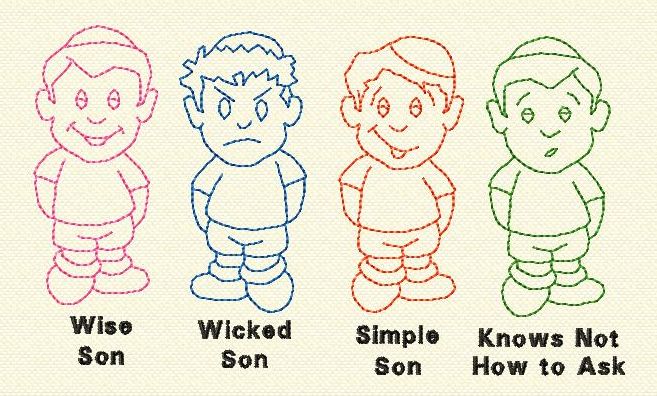One of the most famous sections of the Hagaddah is the questions of the Four Sons. Each one has a different question and answer, yet it is not so easy to differentiate between the Wicked Son and the others. On the surface his question seems to be reasonable. Yet, we say he is not the same as the others. He has malicious intent.
In this week’s Parsha Bo we find the source for three of the four sons from the Hagaddah. The fourth appears in Parsha Va’eschanan. If we examine the wording of the various verses, three of the sons seem to be very similar, most notably the Wise Son and the Wicked Son. What is the difference?

Often a person decides on a course of behaviour which is incorrect. In order to justify their position, they question the premise of the rule that they don’t want to follow. In such a case, it is almost impossible to provide an answer that will be satisfactory. The individual is not truly seeking an answer, so no answer will satisfy them.
Kli Yakar points out that if we look at the verses of the four sons, we see there is a difference in when the question is being asked. For the Wise Son and the Simple Son, it says “And if he will ask you tomorrow”. For the Wicked Son it doesn’t say tomorrow. The timing of the question is significant. The Wise Son and the Simple Son wait until the next day to ask. The night of the Seder, they are ready to do the Mitzvah without question. When they have time the next day, they want to know more about why they did it. The Rasha on the other hand doesn’t want to be part of it. He immediately puts up objections and says if you can’t convince me, I won’t do it. The Wicked Son is not really interested in hearing the answer. He just doesn’t want to perform the Seder. That is why he asks right away, and even then, it is not even in the form of a real question. The Torah says “And when your son will say to you” – not “when your son will ask you.”
One of the praises of the Jewish people is that when we were at Mount Sinai, we said Na’aseh V’Nishma – we will do and we will listen. We accept on faith that Hashem gave us the Mitzvos and that we should follow them. Our questions are to seek a greater understanding, not to decide whether the Torah is true.
Shabbat Shalom,
Rabbi Shaps and the JET Team

